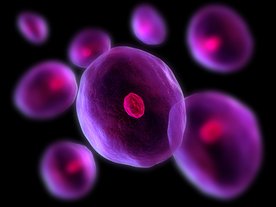
Dr. Bilal Sheikh
Group leader of the Junior Research Group "Vascular Epigenetics", Helmholtz Institute for Metabolic, Obesity and Vascular Research
"By understanding how our environment interacts with our genome, we aim to develop novel molecular strategies that reduce the risk of life-threatening chronic diseases."
Dr. Bilal Sheikh
Group leader of the Junior Research Group "Vascular Epigenetics", Helmholtz Institute for Metabolic, Obesity and Vascular Research
"By understanding how our environment interacts with our genome, we aim to develop novel molecular strategies that reduce the risk of life-threatening chronic diseases."
Academic Career
How does our environment shape us? What environmental factors impact our risk of developing chronic diseases? What molecular networks are responsible for this? Together with his team, Bilal aims to disentangle how our metabolic environment interacts with our epigenome. By understanding the molecular mechanisms underlying this link, Bilal aims to identify novel treatments that could lower the risk of life-threatening chronic disorders. In particular, the lab focuses on these mechanisms in the context of vascular dysfunction, which is typically driven by metabolic disease and underlies numerous diseases such as atherosclerosis, cardiac failure and neurodegeneration.
Prior to joining Helmholtz Munich in 2020, Bilal spent 15 years training in the fields of epigenetics and metabolism. He undertook his PhD at the Walter and Eliza Hall Institute in Melbourne, Australia. During this time, he studied epigenetic enzymes that are important for embryonic development, stem cell function and cancer development. His work cumulated in the design of a novel class of drugs targeting the epigenome that are currently in clinical trials for the treatment of leukemia as well as aggressive classes of breast, prostate and lung cancers.
For his postdoctoral studies, Bilal moved to the Max Planck Institute for Immunology and Epigenetics in Freiburg, Germany in 2014. His work uncovered novel epigenetic mechanisms that control the expression of metabolic networks. Through his research, he established novel links between metabolic networks and vascular function. This research background allowed him to setup the framework for his independent group at Helmholtz Munich, which studies the relationship between metabolism and epigenetics in the context of vascular dysfunction.
Research Areas and Expertise
Epigenetics, Blood Vessels, Metabolism, Single Cell Technologies, Gene Transcription, Vascular
Important Career Steps
Leader of the Junior Research Group Vascular Epigenetics at the Helmholtz-Institute for Metabolic, Obesity and Vascular Research of the Helmholtz Zentrum München at the University of Leipzig
Postdoctoral scientist at the Max Planck Institute for Immunobiology and Epigenetics
Freiburg, Germany
International Humboldt Fellowship
PhD candidate at the Walter and Eliza Hall Institute
Melbourne, Australia
Dora Lush Fellowship
Bachelor of Biomedical Science (with Honors)
University of Melbourne, Australia
Dean's Honor's list recipient, University of Melbourne
Speed-Colemann Prize
Honors and Awards
Alexander von Humboldt International Fellowship
2015Theo Murphy High Flyer's Think Tank
Australian Academy of Sciences
2013Genetic Services Research Prize
University of Queensland
2012Australian Stem Cell Centre Postgraduate Award
2008








